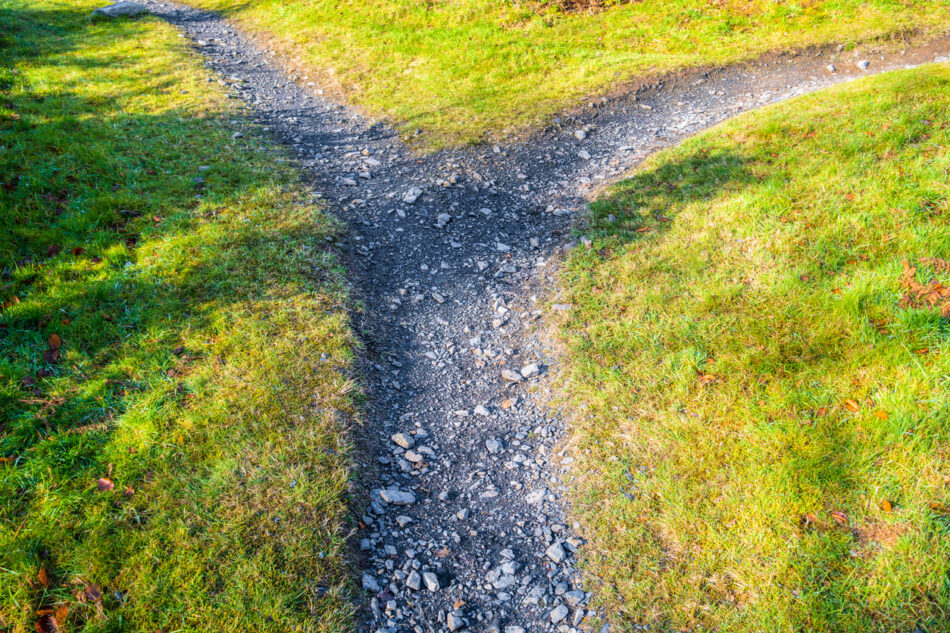I try not to have breaking news alerts on my phone, in large part because seeing those notifications makes me say, “Oh God, what happened now?” While I’m generally a person who wants to have as much information as possible, sometimes, uncertainty is better.
In this week’s portion, Beha’alotekha, we begin to cover the vast majority of the Israelites’ travels through the wilderness. Over the next twelve chapters, we’ll be hearing all the travails, grumblings, and rebellions from the Israelites, right up until they enter the Promised Land. But what’s striking is just how little knowledge the Israelites had about each time they’d be uprooting themselves and going to the next stage of their journey.
At least in my mind, I had always envisioned the Israelites picking up and leaving their encampments every couple of days, but in fact, according to Rashi, there were forty-two named locations in their journeys, meaning they moved about once a year on average (in many ways, this mirrors the way we read this part of Torah, with some parts jam-packed with action, and others lingering on one topic for an extended time). Not only that, the Israelites’ first and last years were filled with constant motion – fourteen movements in the first year, and eight in the last, meaning that for most of the journey, they were in one place for months (if not years) at a time.
So the Israelites never quite knew when it would be time to move on. Sometimes they would be somewhere for just a few days; other times, it would be years. Our portion this week tells us how a cloud would rest over the Mishkan, and would be a sign from God that it was time to travel to the next station:
Whether it was two days or a month or a year—however long the cloud lingered over the Tabernacle—the Israelites remained encamped and did not set out; only when it lifted did they break camp. On a sign from
they made camp and on a sign from
they broke camp; they observed
’s mandate at
’s bidding through Moses. (Numbers 9:22-23)
Only when the cloud lifted – whenever that might be – could the Israelites move on. And they never knew when it would happen. They had to live with the uncertainty.
In general, we often think that we want more certainty and more knowledge in our lives right now. Partly as a desire for more control, and partly as a constant feeling of being unmoored or scared about the way the world is unfolding. And yet, the world is simply filled with uncertainty—though right now certainly feels like one of the scariest times to be living in. Often, we feel this every day, simply because whatever is happening right now feels new and surprising. We have to adapt to new situations and new circumstances—by definition, we don’t know what will happen until it happens.
As Jessica Alquist writes for Psyche, even if we don’t like uncertainty, we need it. As she notes, the world is filled with not-knowing, and navigating it is a crucial skill:
If you did not experience uncertainty in this uncertain world, you would be at a tremendous disadvantage. You would fail to give increased attention to your teenager’s recent erratic behaviour, vague construction detour signs, or that suspicious-looking mole, potentially leading to negative consequences. Uncertainty is also what allows us to get an extra spark of enjoyment out of secret admirers, wrapped gifts and suspenseful novels. Although uncertainty in the world is not always welcome, it is likely you will benefit if you can learn to be more aware of it and comfortable with it.
Whenever the cloud rose over the Tabernacle, the Israelites would have to be ready to act. And while the cloud didn’t offer control, it did give them information that they could then act upon.
The cloud itself was also an apt metaphor for the fog of uncertainty that both they and we live with. It didn’t provide total clarity, but rather, more of a hint. It didn’t tell them where their final destination would be, but instead, simply helped them take the next step to get there.
Today, we crave certainty. We build schedules, life plans, and five-year goals. And yet, if we’re honest, most of our biggest decisions—who we marry, what career we pursue, whether to have children, when to move—are made under conditions of deep uncertainty. Perhaps the best thing we can do is embrace some of the not-knowing and simply take the next step we can see.

